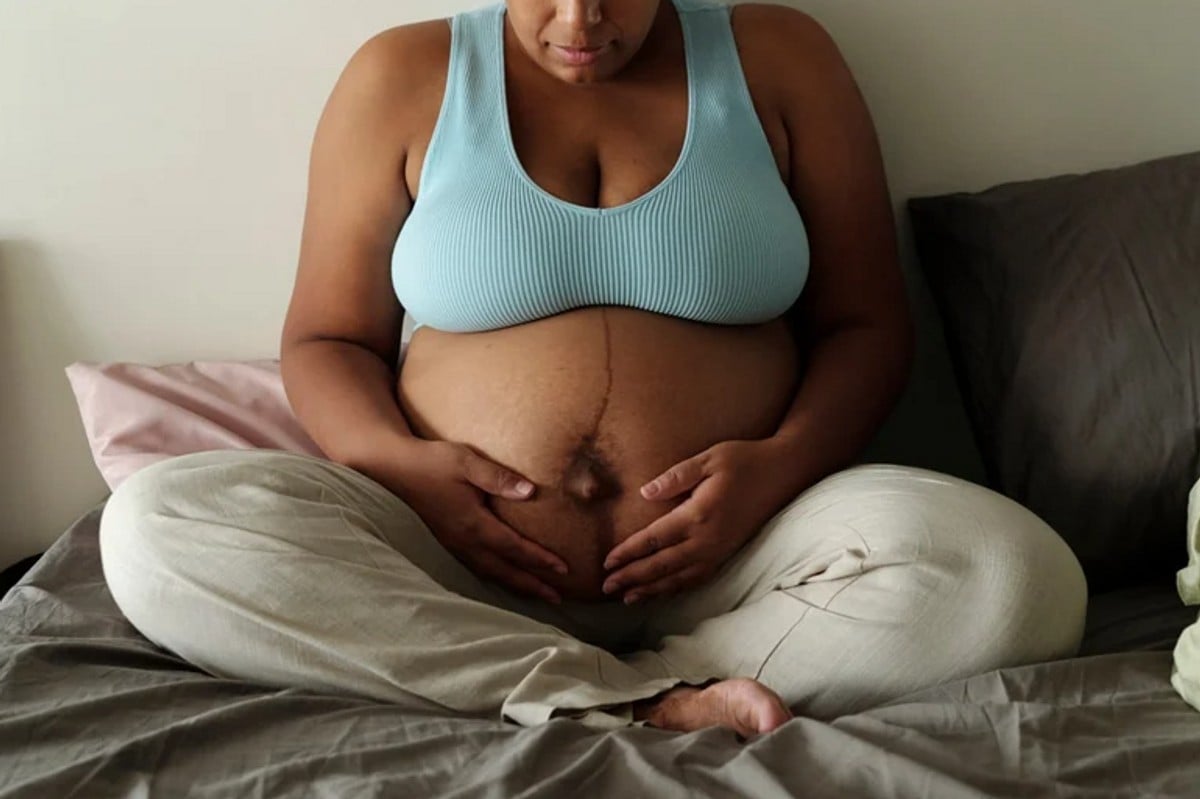
During their pregnancies, Jane* and Belle* had no health complications. Their blood work? Perfect. Every test set before them, they passed with flying colours. And yet, they were treated as "high risk" cases.
Their stories start the same way, by a request from a doctor without so much as a 'hello'.
"It's quite humiliating when you go in for your appointment and [the doctor] immediately says, 'Okay, jump on the scales,'" Jane told Mamamia. "I've also had a false accusation of having type two diabetes. It's like, 'You're Polynesian, you are this big, so you must have this'."
Belle can relate.
"[I was] weighed as the first thing before even meeting any health professional," she shared. "Then blood pressure was taken, and a big red note was made in the front of my file: 'LARGE BLOOD PRESSURE CUFF'."
Insensitivities and assumptions like this, while they might seem innocuous, are actually manifestations of what is called "weight stigma".
Watch: Diary Of A Birth Trailer. Post continues after video.
"Weight stigma is negative stereotypes, prejudiced attitudes and discriminatory behaviours towards individuals because they are living in a larger body," said Haimanot Hailu, a PhD candidate in Monash University's Health and Social Care Unit.




























































































